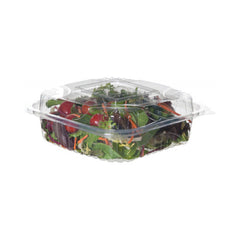Biodegradable Plastics Just One Piece of the Puzzle
Share
Today, a number of products come in plastic packaging that is labeled as biodegradable and an increasing number of stores are offering disposable bags that they say are biodegradable. A recent report from the UN reveals that the shift to these types of plastics are unlikely to help the problem of mounting plastic waste in the ocean.
image source: www.theguardian.com
The problem with synthetic biodegradable plastics is that their names are actually a bit deceiving. In order for many of these biodegradable plastics to break down rapidly, they need to be exposed to temperatures of 122 degrees Fahrenheit or more. In most parts of the world, environmental temperatures never get that high, and no ocean water is that warm. UV can gradually degrade the plastics, but most plastic waste sinks to the bottom of the ocean where it's beyond the reach of UV.
So what's the solution to the plastic problem in the ocean? First of all, switching to truly biodegradable plastics made from plant-based materials can make a difference. Naturally derived plastics used in many of the products sold here at Paperless Kitchen do readily break down at less than extreme temperatures. Recycling programs must also be improved and the public must be educated on the importance of not littering at the beach and ensuring that their plastics end up in recycling bins, not the garbage, wherever they are.
Individually as green conscious consumers, we can do our part by researching what words like “biodegradable” really mean when it comes to product packaging and spreading the word.


